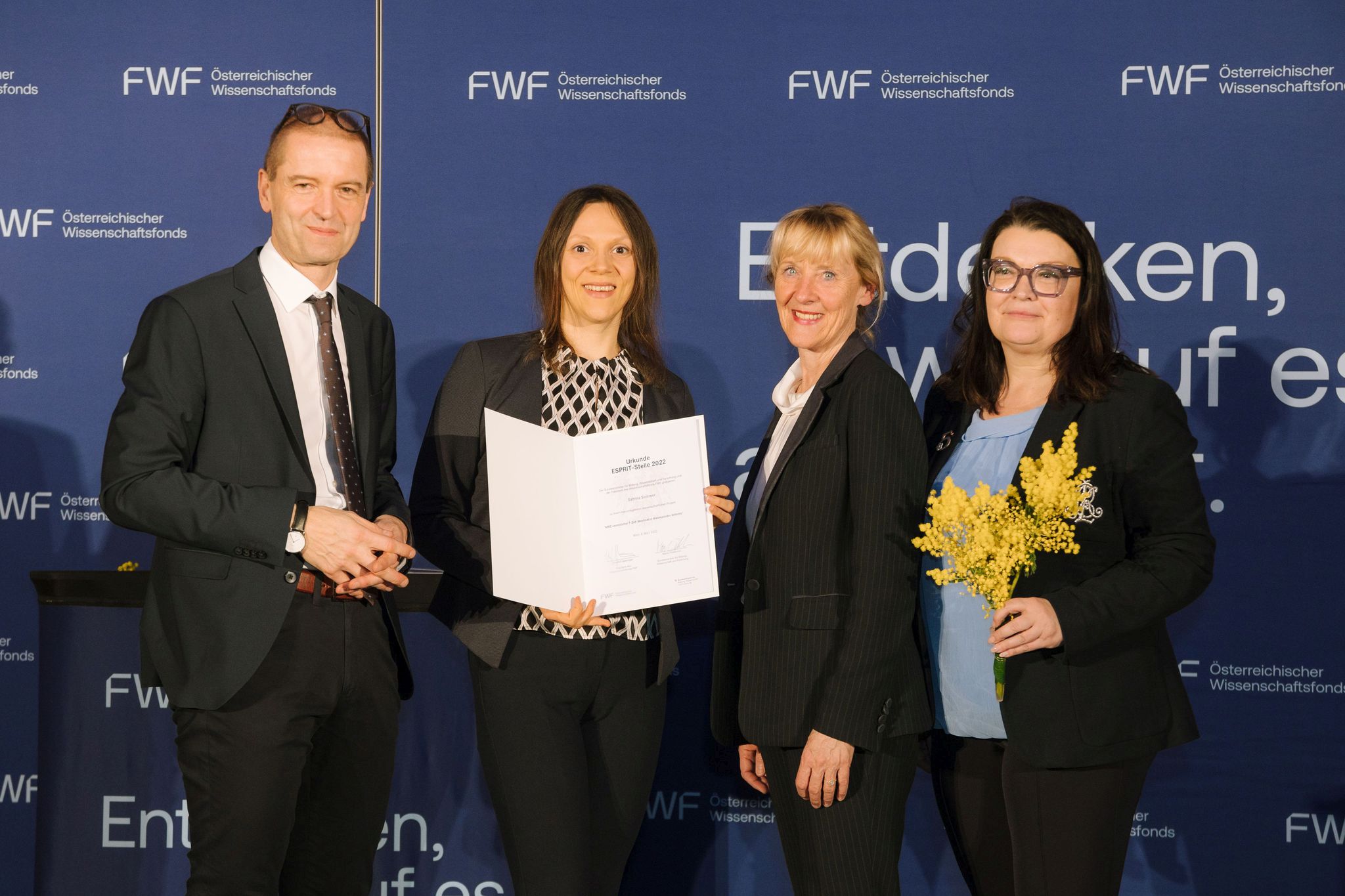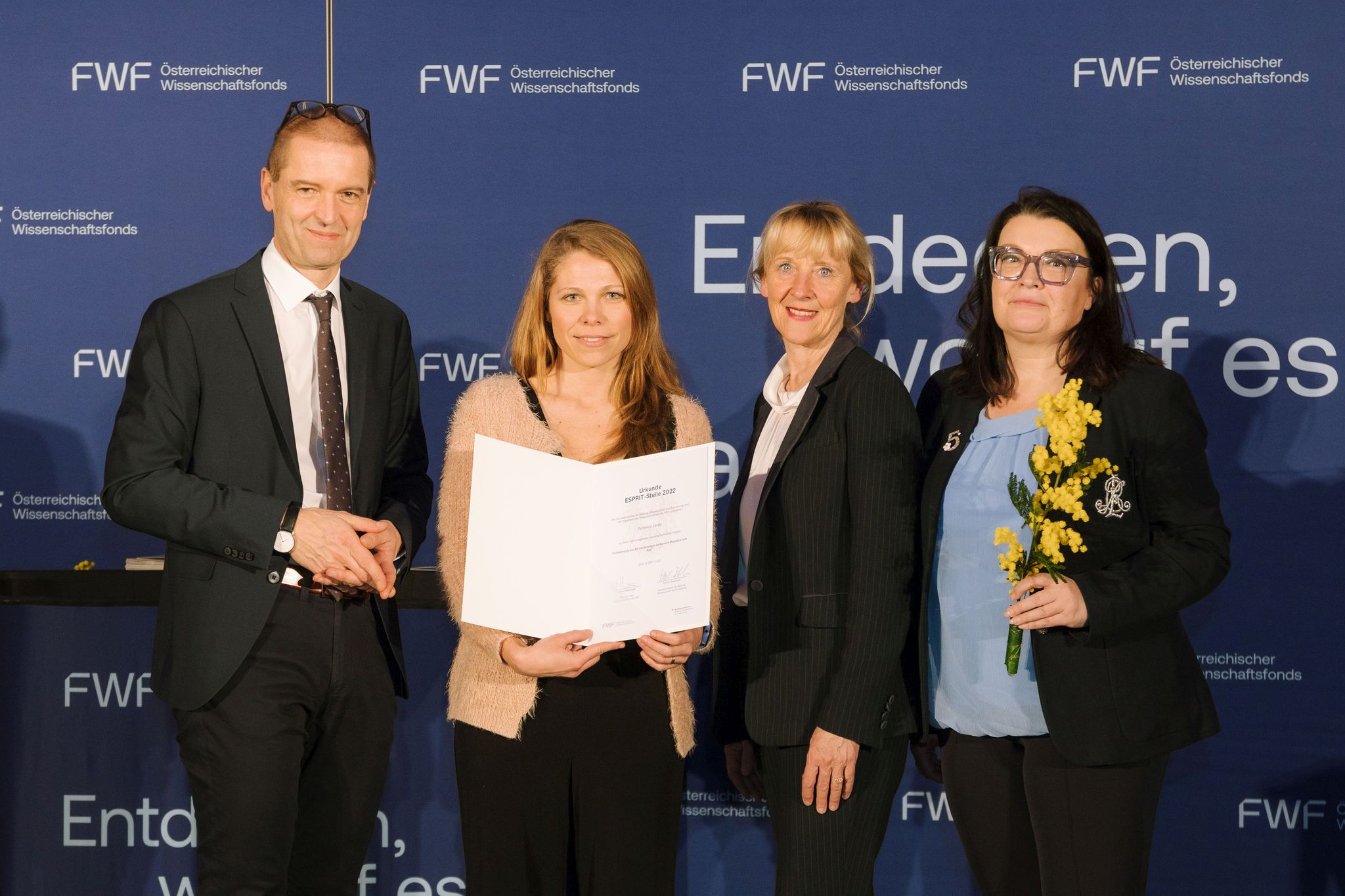Last year, 59 female researchers in the FWF's ESPRIT and Elise Richter career programs received awards. On International Women's Day, they were handed their awards and came together in Vienna to exchange ideas about careers in science. Sabrina Summer and Federica Zardo, two female researchers working at the University for Continuing Education Krems, are among the recipients and were awarded with ESPRIT projects.
Overall, the FWF currently funds nearly 2,300 women in ongoing FWF projects throughout Austria. 34 percent is the average share of women who were able to obtain FWF funding as project leaders in the funding programs last year, and the number is on the rise. On total 59 female researchers received support with ESPRIT or Elise Richter career funding in the postdoc and senior postdoc phase in 2022. It was on the occasion of International Women's Day that the newly approved female project leaders came together in Vienna to receive their awards and to network.
The ESPRIT program covers a range of career development opportunities for researchers from all disciplines by means of an independent research project as a project leader. The mentor’s task is to support the project leader in his or her competence and career development.
Sabrina Summer, PhD, Center for Experimental Medicine, conducts research on rheumatoid arthritis, a common autoimmune disease that so far has an unknown cause. Thus, the earlier the diagnosis the more effective the treatment of the disease. InflammTswitch focuses on characterizing biomarkers for early diagnosis of rheumatoid arthritis, and on the involvement of stem cells in the differentiation of pro-inflammatory T-cells. The ESPRIT project award gives her great pleasure and gratitude to all those who have supported her along the way and enables her to take another important step in her career.
Federica Zardo, Center for Migration and Globalisation Studies at the University for Continuing Education Krems, is carrying out research of why migration flows to the EU have increased. The project addresses the question of how and to what extent EU financial instruments have undergone changes since the supranationalization of this policy area of migration in the early 2000s, and whether more activities are funded to control migration flows or rather to support integration and legal immigration. It also sheds light on the question of funding - has it been more centralized at the EU level, or does it continue to be managed by the Member States? The awarded ESPRIT project enables scientific analysis to answer these central questions.
Contact
Tags


_Skokanitsch_Magnolia%20(210x280px).jpg)